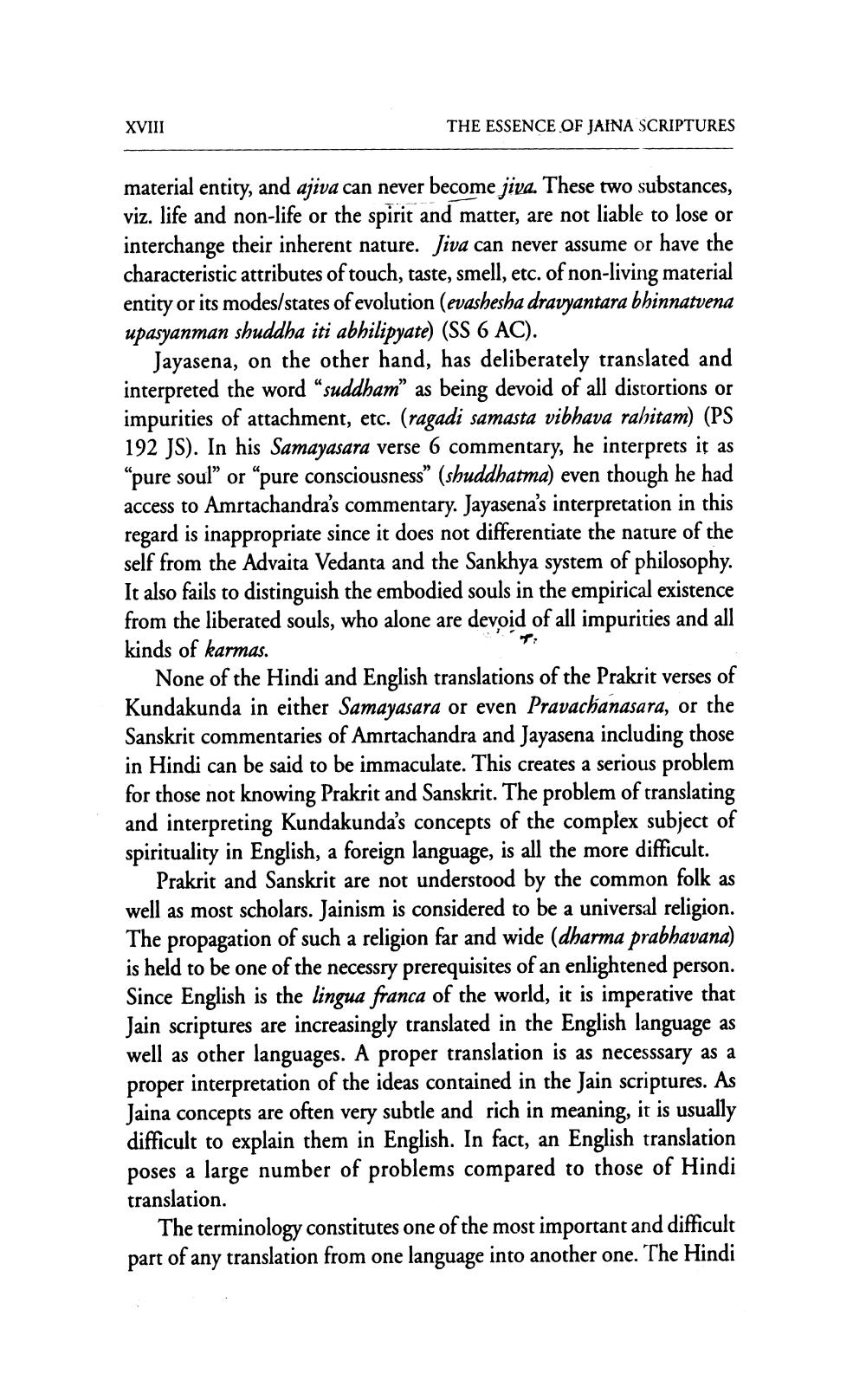________________
XVIII
THE ESSENCE OF JAINA SCRIPTURES
material entity, and ajiva can never become jiva. These two substances, viz. life and non-life or the spirit and matter, are not liable to lose or interchange their inherent nature. Jiva can never assume or have the characteristic attributes of touch, taste, smell, etc. of non-living material entity or its modes/states of evolution (evashesha dravyantara bhinnatvena upasyanman shuddha iti abhilipyate) (SS 6 AC).
Jayasena, on the other hand, has deliberately translated and interpreted the word "suddham" as being devoid of all distortions or impurities of attachment, etc. (ragadi samasta vibhava rahitam) (PS 192 JS). In his Samayasara verse 6 commentary, he interprets it as "pure soul" or "pure consciousness" (shuddhatma) even though he had access to Amrtachandra's commentary. Jayasena's interpretation in this regard is inappropriate since it does not differentiate the nature of the self from the Advaita Vedanta and the Sankhya system of philosophy. It also fails to distinguish the embodied souls in the empirical existence from the liberated souls, who alone are devoid of all impurities and all kinds of karmas.
T:
None of the Hindi and English translations of the Prakrit verses of Kundakunda in either Samayasara or even Pravachanasara, or the Sanskrit commentaries of Amrtachandra and Jayasena including those in Hindi can be said to be immaculate. This creates a serious problem for those not knowing Prakrit and Sanskrit. The problem of translating and interpreting Kundakunda's concepts of the complex subject of spirituality in English, a foreign language, is all the more difficult.
Prakrit and Sanskrit are not understood by the common folk as well as most scholars. Jainism is considered to be a universal religion. The propagation of such a religion far and wide (dharma prabhavana) is held to be one of the necessry prerequisites of an enlightened person. Since English is the lingua franca of the world, it is imperative that Jain scriptures are increasingly translated in the English language as well as other languages. A proper translation is as necesssary as a proper interpretation of the ideas contained in the Jain scriptures. As Jaina concepts are often very subtle and rich in meaning, it is usually difficult to explain them in English. In fact, an English translation poses a large number of problems compared to those of Hindi
translation.
The terminology constitutes one of the most important and difficult part of any translation from one language into another one. The Hindi




